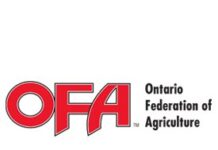I make no attempt to hide the fact that I am anti carbon tax. However, I believe even more strongly that regardless of a person’s beliefs for or against the carbon tax, everyone should agree that farmers ought to be exempt. That’s the essence of Bill C-234, currently before the senate.
The carbon tax is supposed to be a “neutral” tax, with a set amount of money returned to each person or family quarterly as a refund of tax paid. Those who purchase an average amount of fuel have net zero losses or gains. Those who purchase lots of fuel end up losing money, and those who purchase less fuel than an average person end up with a financial bonus.
The carbon tax concept makes sense in theory, but has a lot of holes. One is that the poorest of families can’t afford to shell out extra fuel money now and wait three months for reimbursement. Another is that “net zero” is a farce when money changes hands, with taxpayers on the hook for administrative costs to keep the program running. Yet another is that just like many other systems in our society (such as using fines as a criminal penalty), those with money are essentially unaffected.
Despite these points, I acknowledge that to some small extent, the carbon tax probably works. I myself try to eliminate unnecessary journeys due to the price of gasoline, though for as long as I can afford it, I refuse to let the price of natural gas dictate that I must freeze in the winter.
All said, I don’t support the carbon tax, but I can see why some people do. What I can’t support is our local farmers bearing the costs of carbon tax when fuel is an expense that they can’t avoid. Are you one of the 8 billion people on Earth who requires food to survive? If so, then surely you see it as unconscionable to hit farmers with an unavoidable tax that puts an extra cost burden on running the equipment that harvests your food?
If the purpose of the carbon tax is to encourage people to use less fossil fuels, it has no business being charged to those who have no choice. I assure you that farmers do not have the spare time required to go joyriding in their combine. When that machine is running, it’s running to put food on the table for thousands of Canadian families. In a Canada that is already unbearably expensive, adding costs to food production is a completely illogical move.
Don’t suggest that farmers should switch to electric equipment. This is not a solution. A farmer who is struggling with the cost of a fuel tax is not likely financially prepared to buy an entirely new machine. This is especially true when that new machine requires special charging infrastructure, has less power than existing equipment, and must be out of commission for at least 5 hours every time it needs charging, which in a farm work day, could be several times a day. Electric equipment may one day be practical, but only innovation can get us there, certainly not a carbon tax.
I wonder why Bill C-234 wasn’t passed quickly. How can we justify continuing to charge farmers this burdensome tax? If not for reasons of compassion toward those who produce our food, then we should at least consider supporting Bill C-234 for selfish reasons. Lowered costs for farmers could, after all, help tame the out of control (and rising) cost of food.
The answer to why Bill C-234 was still sitting in the Senate as I wrote these words, awaiting potential revisions and causing much debate, likely lies in the adversarial and downright childish way political issues are often handled in this country. Bill C-234 was a private member’s bill, meaning that regardless of merit, its purpose and value were destined to be questioned from the moment pen hit paper.
I fully support the Ontario Federation of Agriculture and other groups who are urging Bill C-234 to be passed to give farmers some much needed relief. There are times when politicians really must cast aside the politics and work on the side of logic. Either give us a good reason why farmers should be paying the excess tax, or pass Bill C-234 as a declaration that we will no longer bite the hand that feeds us.


